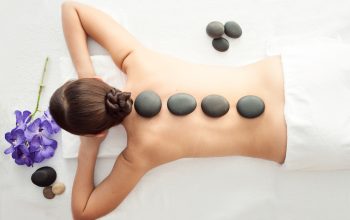The market for testosterone boosters targeting men has witnessed a surge in popularity, with claims ranging from enhanced muscle growth to improved vitality. This investigation delves into the scientific studies supporting or refuting the claims associated with various male testosterone booster, aiming to provide clarity on their effectiveness and reliability.
D-Aspartic Acid (DAA):
Claim: DAA is touted for its ability to stimulate testosterone production.
Scientific Support: Some studies indicate a potential increase in testosterone levels with DAA supplementation, particularly in individuals with low baseline levels. However, research results are mixed, and the long-term effects and optimal dosage remain subjects of ongoing investigation.
Zinc:
Claim: Zinc is often included in testosterone boosters for its role in testosterone synthesis.
Scientific Support: Adequate zinc levels are crucial for maintaining testosterone production, and zinc supplementation may benefit individuals with zinc deficiencies. However, for those with normal zinc levels, supplementation may not significantly impact testosterone levels. Dosage and duration are important factors in determining effectiveness.

Tribulus Terrestris:
Claim: Tribulus terrestris is promoted as a natural testosterone booster.
Scientific Support: While some studies suggest a positive correlation between tribulus terrestris and testosterone levels, the evidence is inconclusive. Results vary, and the overall impact on testosterone levels may not be substantial. More robust, well-designed studies are needed to draw definitive conclusions.
Fenugreek:
Claim: Fenugreek is believed to enhance testosterone and support muscle growth.
Scientific Support: Research on fenugreek’s impact on testosterone is mixed, with some studies indicating positive effects, while others show no significant changes. Additional research is necessary to determine the consistency of results and the optimal dosage for testosterone enhancement.
Ashwagandha:
Claim: Ashwagandha is marketed for its adaptogenic properties and potential to increase testosterone.
Scientific Support: Studies on ashwagandha suggest it may have a positive influence on testosterone levels, particularly in stressed individuals. However, more research is needed to establish a clear cause-and-effect relationship. Ashwagandha’s overall impact on male reproductive health and muscle gain is still an evolving area of study.
Conclusion:
The landscape of the best testosterone booster for men is marked by a diversity of ingredients, each with its own set of claims and varying degrees of scientific support. While some ingredients, such as D-Aspartic Acid and zinc, show promise in specific contexts, others like tribulus terrestris and fenugreek present conflicting research findings. Ashwagandha emerges as a potentially multifaceted ingredient with adaptogenic properties that may indirectly impact testosterone levels.




